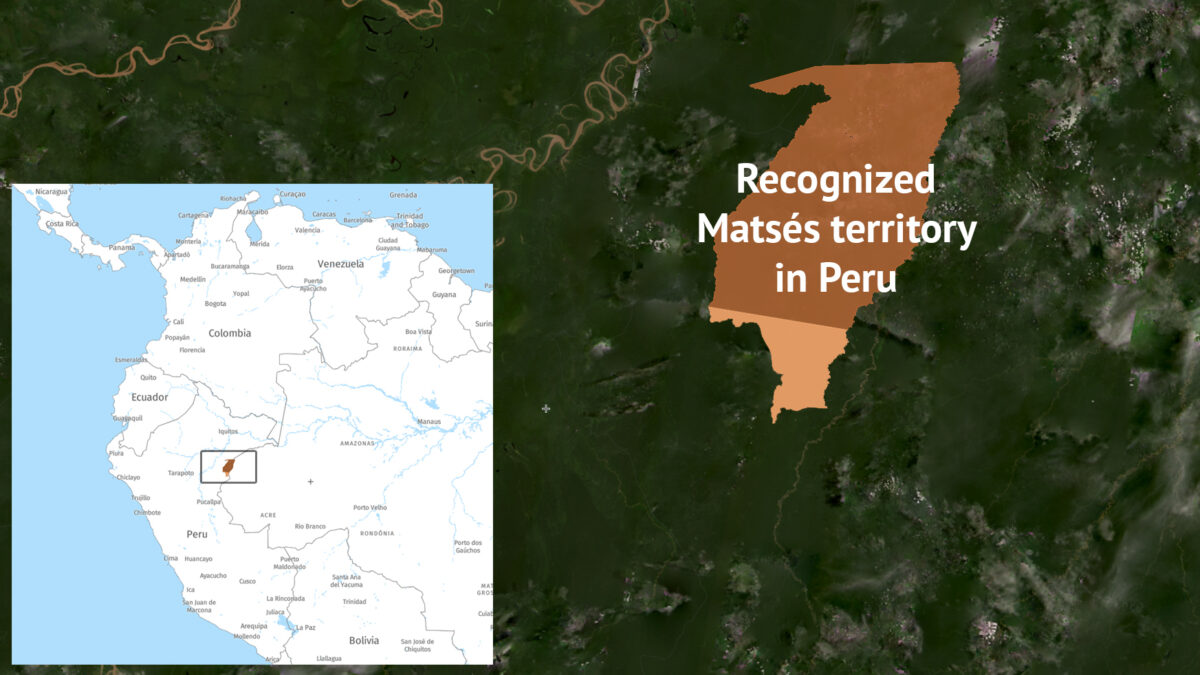One of my favorite aspects of running Mongabay is hearing about how our reporting has led to meaningful impacts around the world.
Recently, we learned that the Matsés Native Community, the largest in Peru, terminated their agreement with the Peruvian company Get Life. This decision followed a Mongabay investigation — False claims of U.N. backing see Indigenous groups cede forest rights for sketchy finance — that exposed how multiple companies, including Get Life, made false claims to persuade Indigenous communities to surrender the economic rights to their forests.
A spokesperson from the new directive team of the community confirmed this decision with Mongabay and shared that their next step will be to have the contract with Get Life withdrawn from Peru’s public registry, Sunarp.
Moreover, the communications chief at Conservation International also confirmed the termination of its MOU with Get Life regarding the creation of a Private Conservation Area in the Matsés Native Community, prompted by the findings of our investigation.
Additionally, the legal team of the United Nations Institute for Training and Research (UNITAR) is issuing a cease-and-desist letter to the involved Argentinians: the president of CIFAL Argentina and the president of Fundación Luciérnaga. The UNITAR Division Director informed Mongabay that this is their last step before pursuing legal actions. The case has also been brought to the attention of the UN Under-Secretary-General.
Finally, the Task Force on Nature Related Financial Disclosures (TNFD) has suspended CIFAL Argentina in response to our findings and removed them from their website. “The TNFD Co-Chairs reserve the right to end an organization’s participation in the Forum based on a serious failure to respect TNFD principles and/or where the organization’s conduct is deemed incompatible with the membership of the Forum,” a TNFD representative stated.
This series of actions underscores the power of investigative journalism in protecting the rights and sovereignty of Indigenous communities. It is a testament to the impact that diligent reporting can have on enforcing transparency and accountability in environmental dealings. At Mongabay, we remain committed to uncovering the truth and fostering a just and sustainable world.
Key findings from the investigation:
- Several companies registered in Latin American countries claiming to have U.N. endorsement persuaded Indigenous communities to hand over the economic rights to their forests for decades to come. The companies share commercial interests across various jurisdictions, and have not been able to demonstrate experience in sustainable finance projects.
- Indigenous communities in Peru, Bolivia and Panama were promised jobs and local development projects in exchange for putting on the market more than 9.5 million hectares of forests. According to community sources, the claims of U.N. backing were the main selling point for agreeing to put their forests on the market. All three U.N. entities cited by the companies have rejected any involvement.
- Mongabay found that the methodology employed for valuing natural capital has not been used before; there are no public details regarding its scientific and technical basis; and the company that created the methodology refused to share information about it.

